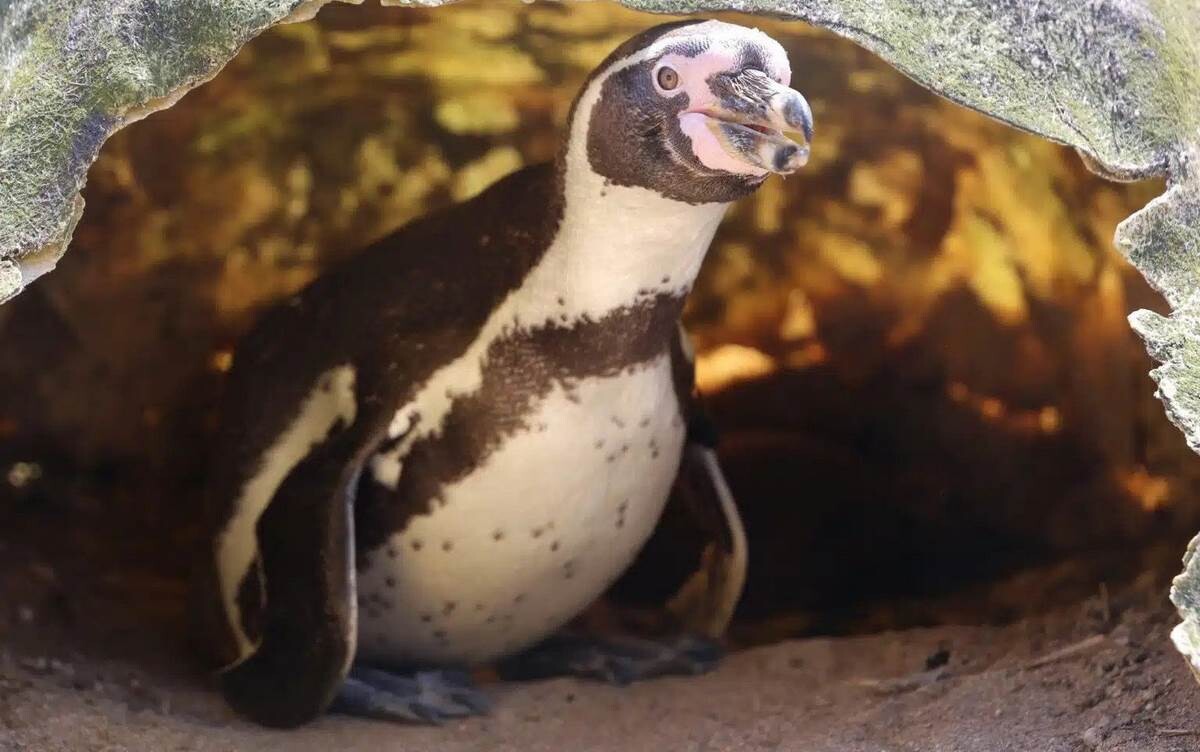Conservationists watch and note as Penguin 999.000000007425712 returns to the Stony Point colony in Betty’s Bay, South Africa, after a day of foraging. She left early in the morning weighing 2.7 kg and returned having gained only 285 grams, a worrying sign of dwindling fish stocks.
Eleanor Weideman, a coastal seabird project manager for BirdLife South Africa, is concerned. “In a good year, they come back with their stomachs bulging,” she says. Penguins can typically gain up to one-third of their body weight in a day. “But there’s just no fish out there anymore.”
What’s more, this food is not just for her – it is for her mate and their babies. Tomorrow, the penguin couple will switch roles; she will stay in the nest while he forages. If conditions improve, they might raise two clutches of eggs this season.
However, at the current rate, they may have to abandon breeding altogether. Over the past 120 years, the African penguin population has plummeted by over 99%. With a yearly decline of 7.9%, they could be extinct in the wild by 2035.
The extinction of African penguins would not only be an ecological catastrophe—penguins serve as an indicator species for their ecosystem—but also a significant blow to South Africa’s tourism industry. The Boulders Beach colony in Cape Town contributes 311 million rand (£13 million) annually to the local economy.
In response, BirdLife South Africa and the Southern African Foundation for the Conservation of Coastal Birds have taken legal action against South Africa’s Minister of Forestry, Fisheries, and the Environment, Barbara Creecy. They claim she failed to implement crucial fishing closures around six penguin colonies, which host 76% of the global African penguin population.
Alistair McInnes, head of the Seabird Conservation Programme at BirdLife South Africa, explains that the proposed fishing bans would apply only to commercial vessels using purse-seine nets, which are large nets designed to catch entire shoals of small pelagic fish like sardines and anchovies. These species are vital to the penguins’ diet, and their stocks are at historic lows.
Cape cormorants, another endangered bird species, and small-scale handline fishers, who depend on sardines and anchovies, also stand to benefit from the proposed bans. An expert panel appointed by Creecy reported in July 2023 that targeted fishing closures would likely aid penguin Conservation.
However, the minister implemented only limited closures. For instance, at Stony Point, the protected area is a third of what the panel recommended, making food scarcity a persistent issue for penguins like 999.000000007425712.
The South African pelagic fishing industry disputes the court action, claiming the impact of their fishing on penguin numbers is minimal and criticizing the NGOs for delaying efforts to identify the primary causes of the penguins’ decline. Creecy’s office did not provide further clarification on her decision-making process. While fishing is a significant factor, it is not the only threat to penguins.
Climate change, land predators, and noise Pollution from ship refueling at the St Croix colony near Gqeberha also pose dangers. Nonetheless, prey availability remains crucial for the survival and reproduction of specialist predators like African penguins. The Boulders colony near Cape Town, where purse-seine fishing has long been banned, is the only colony with a stable population.
This article by Trinity Sparke was first published by One Green Planet on 1 June 2024. Image Credit :Only Fabrizio/Shutterstock.
What you can do
Help to save wildlife by donating as little as $1 – It only takes a minute.





Leave a Reply